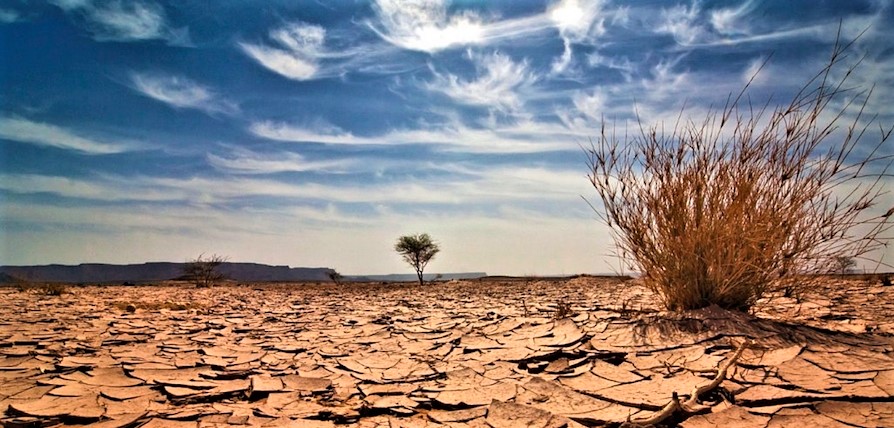The Middle East, an area characterized by an arid climate and constrained water resources, is confronted with the escalating issue of water scarcity. The critical problem is not solely the scarcity of water but the unsustainable utilization of the available resources. In specific countries, water extraction exceeds sustainable thresholds by over fifty percent, leading to surface and groundwater reserves depletion. This excessive use extends its impact beyond the present, endangering livelihoods, hindering development prospects, and posing threats to the welfare of forthcoming generations.

Understanding the Heterogeneity of Water Challenges
The water scarcity challenge in the Middle East is not homogenous. Its manifestation varies according to each country’s hydrological profile and resources. For instance, some countries rely predominantly on groundwater, while others depend on substantial transboundary rivers. The Gulf countries are grappling with acute water scarcity, prompting the exploration and adoption of unconventional water resources. Techniques such as desalination and the recycling of non-potable wastewater have been adopted to counter water deficits and balance the continual extraction of non-renewable subterranean water. This scenario emphasizes the importance of understanding and diversifying potential regional water resources.
Saleh Alda, Thesis
Addressing water scarcity in the Middle East is like assembling a complex jigsaw puzzle. Every piece, from effective policies to technological solutions and regional cooperation, must fit together to create a complete picture of sustainability.
Detrimental Implications of Unsustainable Water Use
One alarming consequence of unsustainable water use is the imminent threat to both non-renewable and renewable aquifers. Persistent over-extraction of groundwater could lead to the exhaustion of these aquifers to a point where extraction becomes economically unviable. Consequently, water quality might deteriorate, becoming unsuitable for human consumption. The uncertainties surrounding groundwater reserves make it challenging to foresee when an aquifer might reach this critical stage.
Complicating Factors and Economic Implications
Compounding the water crisis in the Middle East are practices that contribute to declining water quality. These include unsustainable water consumption, excessive groundwater extraction, desalination brine discharge, and insufficient wastewater treatment. The World Bank reports that these practices result in an annual cost of 0.5% to 2.5% of the region’s GDP, inducing health issues from water-borne diseases and ecosystem degradation. Over half of the collected wastewater in the Middle East is released untreated, leading to severe health risks and the squandering of potential water sources.
The region’s total water productivity lags behind other regions, amounting to only half the global average. Using about 80% of the region’s water, the agricultural sector generates lower economic returns per water unit than other economic sectors. These inefficiencies necessitate a thorough evaluation of current water usage patterns and the exploration of more efficient practices.
Furthermore, the Middle East endures significant losses in freshwater resources and the food supply chain, with loss rates in some countries ranging from 80 to 177 cubic meters per person per year due to food waste. The UN Food and Agriculture Organization estimates that food waste in the Middle East is 32%, soaring to about 60% for water-intensive fruits and vegetables.
Systemic Issues Amplifying the Crisis
Systemic issues, such as high water subsidies and weak enforcement mechanisms, inadvertently foster the over-exploitation of water resources and perpetuate low-value water usage. Managing demand and crafting effective incentives for efficient water use form a significant part of the region’s water challenge.
The economic repercussions of water shortages and sanitation issues are substantial, causing annual losses of approximately 1% of the regional GDP and 2% to 4% in conflict-ridden countries. The estimated ongoing cost of economic losses due to inadequate water supply and sanitation in the region is about $21 billion annually, highlighting the urgency for effective solutions.
Navigating Towards a Sustainable Water Future: Proposed Solutions
A multifaceted approach is imperative to mitigate this crisis. Resource diversification, employing desalination and wastewater recycling technologies, can offer alternative water sources. Improved management practices, including robust monitoring, effective enforcement mechanisms, and reducing water subsidies, can curtail overuse and promote sustainable consumption patterns.
Increasing wastewater treatment can reduce health risks associated with water-borne diseases and create an additional harnessable water source. Enhancing water productivity, particularly in the agricultural sector, should be prioritized. By adopting water-saving technologies and practices, more output per water unit can be achieved, leading to more efficient water usage.
Addressing food waste can result in substantial gains. Reducing waste in the food supply chain’s processing, distribution, and consumption stages could significantly decrease the amount of water ‘lost’ in producing unconsumed food.
Implementing robust water management policies and improving infrastructure can create a more sustainable water future for the region. Infrastructure investments can enhance water access and quality, create jobs, and stimulate economic growth. Furthermore, regional cooperation and collaboration can help alleviate water scarcity issues. Transboundary water management and shared investment in water technologies could yield mutual benefits.
While water scarcity in the Middle East is a formidable challenge, a comprehensive and collaborative approach can lead to a sustainable water future. The region can safeguard its precious resources for future generations with concerted effort and investment.
References:
My PHD Thesis
I’m Dr. Saleh Alda, a strategy consultant focusing on sustainable development. My work revolves around addressing environmental challenges. I believe in promoting sustainable practices, efficient resource use, and collaborative solutions for a better future. You can rely on me for clear, concise, and insightful content on these crucial topics.


 Addressing water scarcity in the Middle East is like assembling a complex jigsaw puzzle. Every piece, from effective policies to technological solutions and regional cooperation, must fit together to create a complete picture of sustainability.
Addressing water scarcity in the Middle East is like assembling a complex jigsaw puzzle. Every piece, from effective policies to technological solutions and regional cooperation, must fit together to create a complete picture of sustainability.
